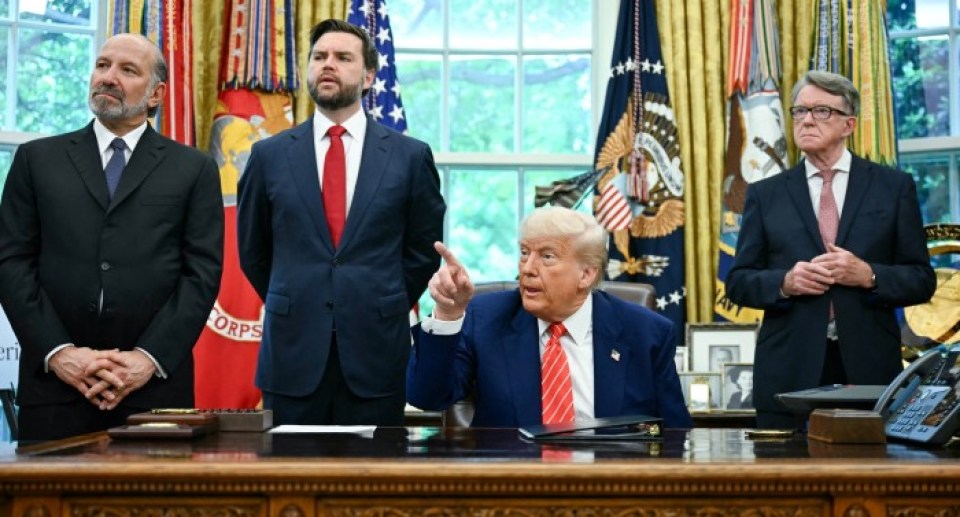Britain’s trade deal with Trump may not be good news for the world

[ad_1]
Unlock the Editor’s Digest for free
Roula Khalaf, Editor of the FT, selects her favourite stories in this weekly newsletter.
“How much legal structure will this deal have?” a trade lawyer at a prominent firm asked me yesterday, gesturing at the detritus of a meeting on the conference table in front of him. “About the same as this napkin.”
Not even the architects of the trade deal announced between the US and the UK would call it a thing of economic or legal beauty. Seemingly without even a signed document — and designed purely to escape the tariffs that Donald Trump imposed on steel and cars — the pact is closer to a protection payment to a mob boss than a liberalising agreement between sovereign countries.
Whether the deal is politically worth it is a calculation only Sir Keir Starmer’s UK government can make. Certainly it didn’t grant US exporters a huge amount more access to the UK market. But whatever short-term benefit it has given to the UK, it hasn’t done a whole lot for the integrity of the global trading system.
The UK isn’t even one of the economies most affected by Trump’s tariffs. Its car industry is largely export-oriented, but mainly towards the EU: the US takes less than a fifth of UK exports. It has a relatively small steel industry, less than 10 per cent of exports from which go across the Atlantic. And since it has barely any trade surplus with the US, the UK was also not threatened with the so-called “reciprocal” tariffs above the 10 per cent baseline duty announced on April 2 and then suspended a week later. The EU, for example, faces another 10 percentage points of tariff, if Trump ever finds the courage to bring it in and risk another financial market meltdown.
This new agreement poses risks to the UK, before even considering the wider implications. Given how eager the UK was to make a deal, there’s no guarantee that Trump won’t come back for more. As per the poet Rudyard Kipling, the thing about Dane-geld — the protection money with which kings in medieval Anglo-Saxon England bought off Viking invaders — is that “once you have paid him the Dane-geld, you never get rid of the Dane”.
During his first term, trading partners could do ad hoc deals with Trump, such as the US’s “phase one” agreement with China, and be reasonably sure they would stick. But as Canada and Mexico can attest, second-term Trump is more capricious and liable to alter a deal after it has supposedly been agreed. Those countries’ pledges to clamp down on fentanyl smuggling were first accepted and then summarily rejected by Trump, despite the absolute lack of evidence in Canada’s case that such smuggling existed on a noticeable scale.
This agreement with the UK is supposed to be followed by a full trade agreement over the next year, but the country has now put itself in a weak bargaining position over that as well. Trump can withdraw these concessions at any time if those talks don’t go his way.
Meanwhile, the most important risk is not to the UK itself but the global trading system. Part of the deal involves reducing protection on imports including ethanol and beef from the US but not from other countries, despite this not being a formal legal trade agreement. The UK has thus undermined the “most favoured nation” principle that underlies the multilateral trading system. Officials strain credibility by claiming it’s compatible with World Trade Organization rules as part of a broader package. If other countries want to kick up a fuss, a WTO dispute settlement hearing may soon be sorting that one out. By accepting that it will continue to face the 10 per cent baseline tariff, the UK has also normalised a deeply regressive move.
When Britain left the EU, part of the pitch was that it would be a vigorous and active advocate for freer trade and multilateral rules. It would play a creative and catalytic role in the WTO, freed of the stultifying protectionism of the EU. And in joining the Asia-Pacific CPTPP agreement, it would link up with the world’s powerhouse region for trade.
By capitulating to US pressure and rushing for a quick deal, the UK has encouraged others to do the same. In recent weeks the EU and CPTPP have made tentative moves towards co-operating to protect the rules-based trading system. China, Japan and the EU have all resisted being bounced into quick agreements by the US. China has insisted it come to the negotiating table on its own terms. The EU today revealed its latest list of retaliation targets against the US. These efforts have now been undermined.
The UK can make a political choice, certainly. It can opt to pay the Dane. It’s managed to escape the worst of the Trump tariffs for the moment. But the promise that post-Brexit Britain would prove to be an unshakeable anchor of the rules-based international trading system looks weaker today than it did before.
[ad_2]
Source link









